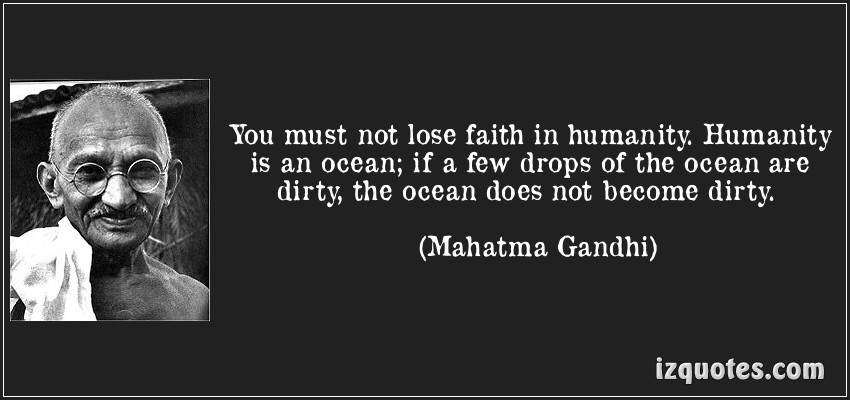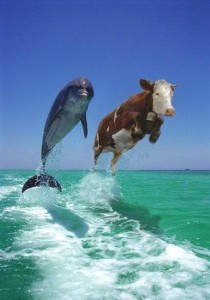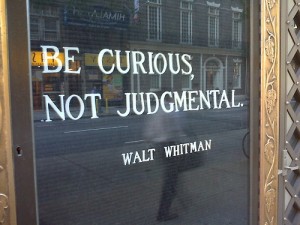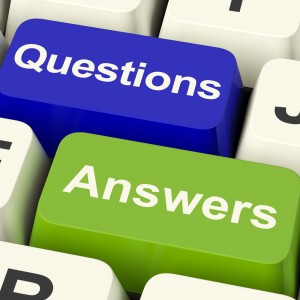There are times when my faith in humanity is restored, as rare as they are, when someone might go out of their way to help someone they don’t know or when someone goes above and beyond to help charities or groups. Those are nice moments and I celebrate them. But it also saddens me because it also means two things: 1) my faith in humanity is lost most of the time and 2) I am celebrating what should be considered the average thing for people to do.
In this last week, I’ve had no reason to celebrate and my faith in humanity lowered even more, which I did not think possible.
First was a Cheerios commercial with a child pranking her father by putting cereal all over him while he was sleeping. Innocent enough and made for a funny cereal commercial. However, it sparked an uproar as many many haters came out from their shadows (often times very public political and journalistic shadows) to have their say in how evil this commercial was for the simple reason that the family in the commercial was of mixed race. Which I personally do not understand as ever person in it was clearly of the human race, but I digress.
Here is the commercial:
Cute right? If you hate it, feel free to not comment. No one wants to hear from you.
Next, we have an 11 year old child with more talent than most of us will ever dream of having, singing the national anthem at a basketball game. Now this kid, he didn’t just do well for an 11 year old, he did better than most adults I see attempting to do the same thing. And I say “attempting to do the same thing” because after this kid’s performance, I am reluctant to call what those other people did as singing the national anthem. He’s just that good.
His name is Sebastien De La Cruz and if his name doesn’t give enough reason to figure out where the hate originated with this one, perhaps the video will. Before you watch though, understand this… this child is American. And he’s awesome.
His crime, according to the haters? Not being white enough I guess. They say it’s because he’s from a family of immigrants but that can’t be it since all the people hating are also descended from immigrants. Also, I’d argue that if he was from any country at all anywhere, they wouldn’t have said anything if only he had been a white kid. But hey, let’s call it like it is. This kid is far more talented than they are, he was the one out there, asked to perform and receiving the standing ovation. I am jealous too! It’s just that I don’t use that as an excuse to hate him for anything I and everything I can no matter how petty.
Again, if you disagree with me and think it’s ok to hate this kid, feel free to comment… somewhere else. No one wants to read what you have to say.
Finally, we have the ultimate in hate, murder. Alex Spourdalakis, a teen aged boy with severe autism was bound to his bed in a hospital and eventually murdered by his mother and godmother as they claimed that caring for him was just too difficult. The truth there is that they simply hated him. They hated that he made them work. They hated that he tested them. They resented him.
The story here: http://abclocal.go.com/wls/story?section=news/local&id=9136005
Now, some people try to say that it’s not the mother’s fault, that parenting is stressful and that having a child like Alex can push you to the extreme… fine. I can agree with that. It can be hard and it can push you. But murder is still murder. Hating someone for making your life difficult is still hate.
Because this child was not the child they had dreamed of, because this child needed more care and a more devoted and caring mother than what she was capable of, they felt it was ok to kill him. I suppose they felt they were doing him a favour, which is clearly a ridiculous notion.
Then, it happened. A knock at my door by a Jehova’s Witness. Who’s lesson he was attempting to share was that hate and prejudice are everywhere but that God is not that way nor did he intend it to be that way. Then, he asked me:
“Do you think people will ever move beyond prejudice and hate? Do you think God is prejudiced?”
I stood there, debating in my mind, whether to slam the door in his face or to let him know what I really think about hate, people and God.
I must have debated longer than I should have because he repeated the question.
I took a big breath and said this:
“No, people will not move beyond prejudice and hate so long as one person is different from another. Should we all eventually develop the same skin colour, we’ll simply find some other reason to hate them. like those with special needs, as an example. We can’t stop the prejudice as it’s something that is a part of us. We see each other for the first time and we instinctively put the pieces together in our minds no matter how hard we try not to. You dress nice, you take care of yourself, you talk to people about good things, you’re clearly a good person. I pre-judged you the moment I opened the door. The thing is, it doesn’t always have to be about hate. I judged you but in a good way. I can respect those that clearly are hard workers, good parents and that do good things even before I get a chance to know them because of my prejudice towards them.
The trick isn’t to stop judging each other but to stop thinking that we always have to do so in a negative way. We have to stop hating people for the differences we don’t approve of and start liking people for the differences we do approve of.
Do I think God is prejudiced? A bit of a trick question if prejudice is to mean “pre-judge before knowing” and God is supposed to know all. But otherwise, of course. But not in a negative way. Everyone is better or worse than someone else at something. To know that, even to assume that as a pre-judgement, is prejudice. To look at a couple in a park that is laughing with their child is to pre-judge them as good parents. They might not be. But it’s a positive prejudice that I might have.
Will we ever move beyond prejudice and hate? No. No we won’t. And right now, society has proven to me that it is anything but an open minded and positive force. But maybe someday. Somehow.”
With that, he closed his bible and said “That’s interesting. I never really thought of it like that”, shook my hand and said goodbye.
Man I hated him for showing up when he did and asking that question. Man I hated people in general and his timing just really enraged me so much.
But the answer that I gave him, it wasn’t what I thought I was going to say at all. As I thought about it after I got back to my desk, I kinda realized that maybe my faith in people isn’t completely lost.
At least, not yet.














